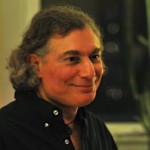Via Press Release
Contact: Julie Risien, 541-737-8664 or Julie.Risien@oregonstate.edu
 CORVALLIS, Ore. – OSU is an international leader in the study of how people of all ages learn science, technology, engineering and mathematics (STEM) both in and out of school. In recognition of the collective expertise of its faculty OSU established the Center for Research on Lifelong STEM Learning in 2012 with a mission to enhance understanding of how individuals with diverse life circumstances and identities become lifelong STEM learners, practitioners and researchers.
CORVALLIS, Ore. – OSU is an international leader in the study of how people of all ages learn science, technology, engineering and mathematics (STEM) both in and out of school. In recognition of the collective expertise of its faculty OSU established the Center for Research on Lifelong STEM Learning in 2012 with a mission to enhance understanding of how individuals with diverse life circumstances and identities become lifelong STEM learners, practitioners and researchers.
This June Dr. Martin Storksdieck begins his tenure as Director of this unique research center, with the charge to grow it into an internationally distinguished hub of learning research to better prepare us to meet the 21st century challenges that will require a STEM ready workforce and citizenry. Like 16 other OSU Research Centers, the Center for Research on Lifelong STEM Learning is under the direct supervision of the Vice President of Research.
Storksdieck joins OSU after serving as Director of the Board on Science Education at the National Academy of Sciences in Washington D.C. There he was responsible for several national efforts to improve K-12 science education, including the first step in the development of the Next Generation Science Standards, oversaw the Academies’ efforts to improve the quality of undergraduate science and engineering education, directed the Academies’ Climate Change Education Roundtable, and worked on science assessment in and out of school. Storksdieck’s research background focused on voluntary, or “free choice” learning, and how learning is connected to behaviors, identities and beliefs. He has also explored the intersection of school and out-of-school teaching and learning.
Storksdieck comes to OSU prepared with an abundant research agenda stemming from the recommendations of the many Board on Science Education reports he oversaw. When asked about his new role Storksdieck said “I am delighted to join OSU and honored to be given the opportunity to shape the Center’s focus. In my new role I will help fill the national research gaps and provide answers where those reports recommended more research.”
The OSU Center is unique among STEM center counterparts in its focus on research and commitment to understanding learning across all settings (in and out of school) and across the lifespan. According to founding Center Director, John Falk, “We are fortunate to have someone of the caliber of Dr. Martin Storksdieck taking over the helm the Center. We are poised to make a profound impact on our understanding of how STEM learning can be advanced to meet the challenges we face as a nation and Martin brings the right combination of experience, vision and skills to move us towards achieving that potential.”










